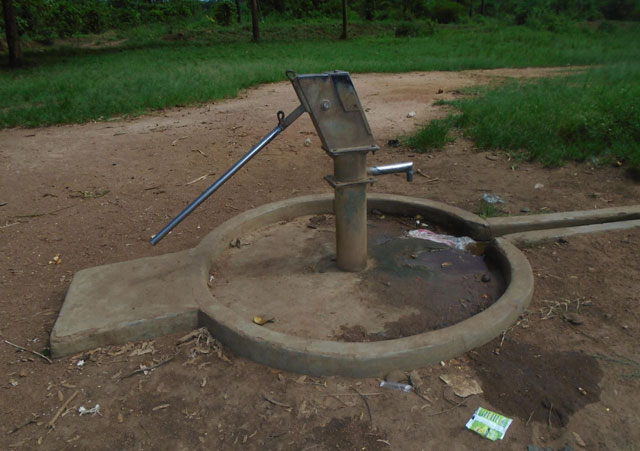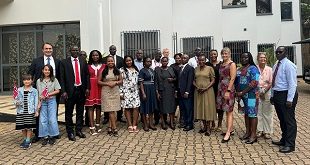
Kampala, Uganda | THE INDEPENDENT | The Ministry of Water and Environment is warning that efforts to ensure that the country has functional boreholes have been derailed by politicians.
While groundwater from boreholes is described as a hidden treasure that enriches our lives, their functionality in the case of Uganda remains a big barrier. And as Uganda joined the rest of the world to mark World Water Day, the Ministry of Water Permanent Secretary Alfred Okot Okidi, said the ending election cycle severely affected the functionality of boreholes and other groundwater sources.
He says while politicking, politicians broke down structures that had been put in place to ensure that boreholes and wells remained functional with community funding and supervision.
“Aspiring and existing politicians without thinking how deep their pockets are, decided to promise that they would repair boreholes. Henceforth destroying the 1000 Shillings that each household is supposed to contribute towards the maintenance of those boreholes,” said Okidi
According to Okidi, in some districts where politicians haven’t honoured the promises, the functionality of boreholes is below 50 percent, yet in districts like Mpigi, Masaka, Mityana and Mubende where local governments resisted offers by politicians, the functionality of boreholes is close to 100 percent.
Okidi was speaking at the launch of Uganda’s Technology Needs Assessment Report for Climate Change Adaptation. The report includes the Technology Plan For Adaptation. It identifies the use of technology for exploitation of liquid freshwater in the world groundwater, as one of the technologies to enable Ugandans to adapt to climate changes.
Under the plan, there is a suggestion to deploy 200 boreholes of about 12,000 litres per hour to 20,000 rural households in municipalities by 2030. These should be deployed in the cattle corridor districts in northern and eastern belts. Researchers however identified the high cost of installing the boreholes as one of the barriers.
While Okidi agrees with the findings of the report developed by Ugandan researchers, he says politicians pose a challenge to their functionality.
Until 2019, Uganda was among the countries in Africa whose groundwater supplies like boreholes were nonfunctional within the first few years of construction. The dysfunctional rate of facilities was contributed to the inequalities between rural and urban areas on access to improved water, sanitation, and hygiene.
In order to solve the problem, the Ministry of Water and Environment released a novel policy in 2019 to enable local governments to support professionalized maintenance of boreholes and spring wells among others.
It was hoped that a community-based management approach would enable the country to work towards achieving Sustainable Development Goal (SDG 6,) “Availability and sustainable management of drinking water and sanitation for all.”
Under the policy, each household is supposed to contribute 1,000 Shillings towards the maintenance of the boreholes. The policy provides that for each behold in the country, there should be pump mechanics trained to ensure their functionality. The policy also provides for water use committees that should collect the one thousand shillings for the management of the boreholes.
Without addressing the issue of politicians and other challenges, Okidi and other technocrats fear that Uganda will continue spending billions of Shillings in the construction of new facilities that break down a few months after being commissioned.
Some NGOs have found that most water facilities across the country don’t meet the reliability test. A reliable water source should provide water for a minimum of 350-days in a year with less than 14-days of breakdown.
Studies by SN-Netherlands Development Organization in Uganda found that very few water sources are able to meet the reliability test. SNV Uganda estimated that a broken-down water source can take up to three months or more before it is repaired.
“On average, a water source functions well within the first three years, after which it starts breaking down. The majority of the current rural water sources are over 5 years old, not regularly maintained and hence at risk of regular breakdowns,” said SNV Uganda
SNV Uganda study in parishes of Lwengo district in southern Uganda found that 52 per cent of households had never made any financial contributions to a Water User Committee, while 34.6% did so on an ad hoc basis.
The survey in Makondo parish in Lwengo in Uganda indicated that over 50% of water pumps have remained idle and useless to communities due to the lack of maintenance.
*****
URN
 The Independent Uganda: You get the Truth we Pay the Price
The Independent Uganda: You get the Truth we Pay the Price


